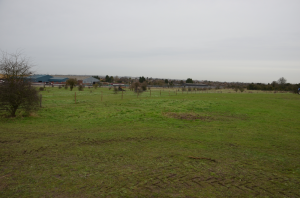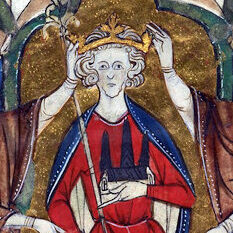
As Dunstable Priory is set to celebrate 800 years since its founding, next year will mark 750 years since the Battle of Lewes and Simon de Montfort summoning his famous parliaments. Montfort no doubt passed through Dunstable many times on his journeys between London and his castle at Kenilworth. We know of one occasion when he stayed at the priory, in 1263, and received confraternity rights from the Augustinian canons there. This was the same year that Simon returned from exile in France to assume leadership of the reform movement against Henry III and his son, the future Edward I. According to the Dunstable Annals, it was a year that saw Edward commit England’s first great bank robbery when, through his usual guile, he relieved the Londoners of their deposits in the New Temple. Infuriated, the Londoners responded by pelting the barge of his mother, Queen Eleanor, from London Bridge as she tried to escape to the royal stronghold at Windsor. All this is recorded in the Annals, which also have one of the more curious entries concerning Montfort, or rather his father. It was around the time of the consecration of the priory and King John was at his usual loggerheads with the barons. A rumour went around that a group of them had decided to depose John and elect Simon senior, then famous throughout Europe for his crusader activities, as king. It was total kvatsch, but just the kind of gossip royalists would later seize on to accuse Simon junior of higher ambitions.

The last connection between Montfort and Dunstable occurred in February 1265, in a crisis that precipitated his downfall. His older sons had become involved in a dispute with Gilbert de Clare, the earl of Gloucester, and his brother Thomas. The Montforts challenged the Clares to a tournament on the grounds believed to be today’s Blow’s Down. Knightly tournaments in the 13th century were more like mock battles that could easily get out of hand. The enmity between the two families had become so great that Simon, then the de facto ruler of England, ordered it to be cancelled, telling his sons, in a famous line, that he was more than willing to lock them away where they would have the benefit of ‘neither sun nor moon.’ Privately, he was worried that Clare would use the opportunity to march on parliament then in session; the same parliament, incidentally, that included ordinary citizens for the first time. To be sure, Clare was incensed over the money he had spent preparing for the tournament and decided it was the final straw. He switched his allegiance to Edward, helping to defeat Simon at Evesham later that year and destroying the reform movement for good.
